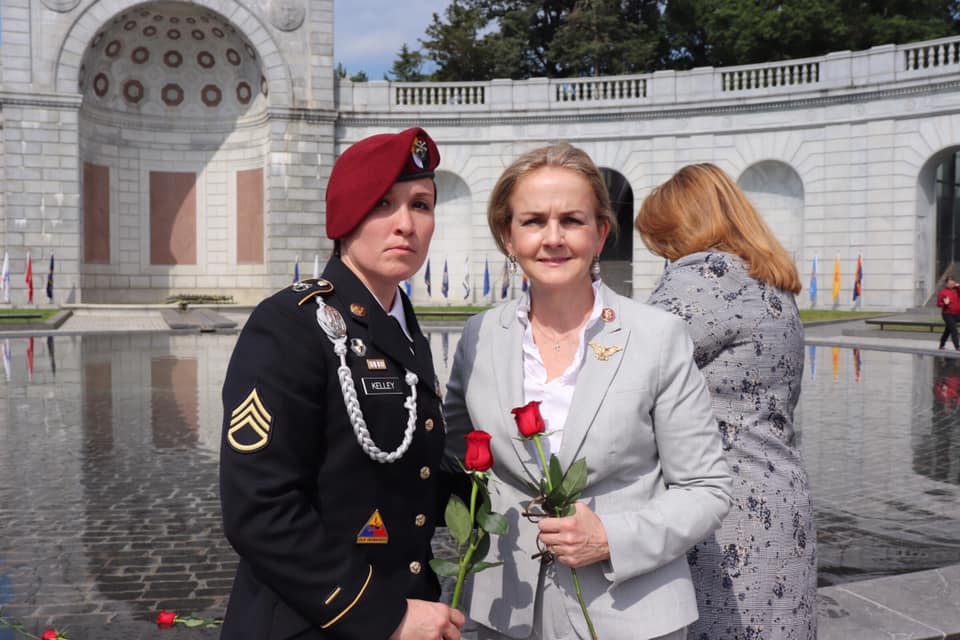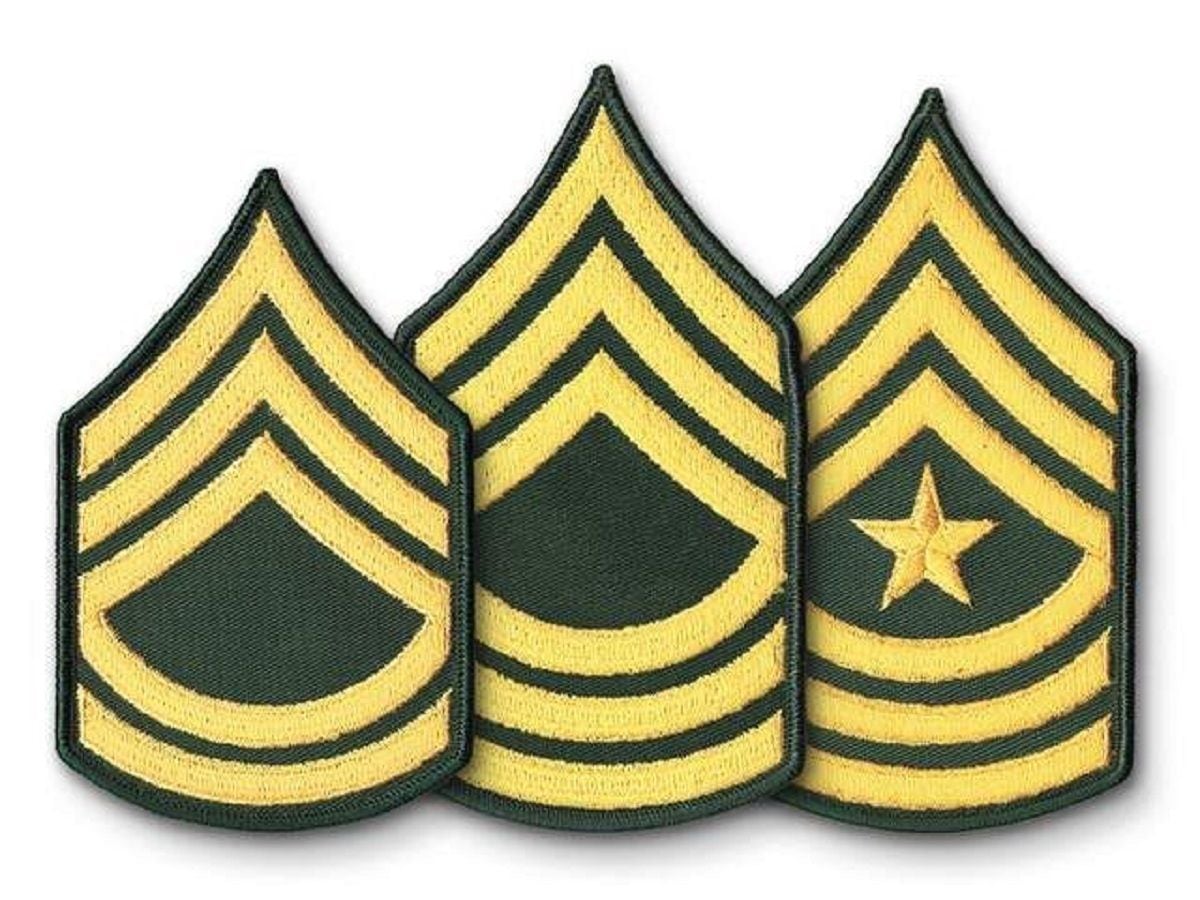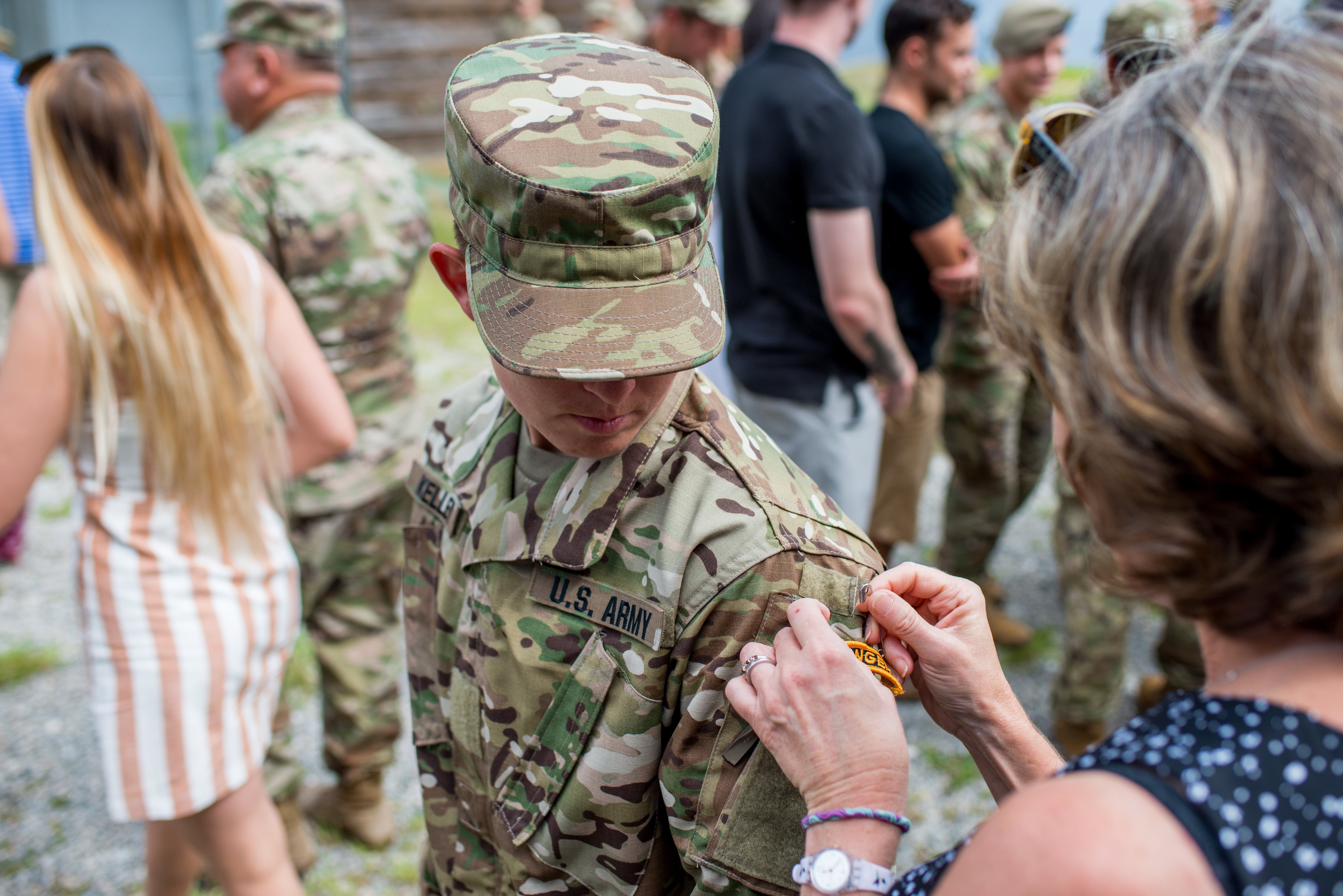Last year Staff Sgt. Amanda Kelley became the first enlisted woman to earn a Ranger tab, a crucial step on her way to achieving her ultimate goal: to be sergeant major of the Army.
On May 17, she gave the first of what could be many interviews from the top senior enlisted adviser’s office in the Pentagon.
“You see how it kind of falls together,” she told Army Times of her visit to the highest echelons of the service.

Kelley was visiting Washington, D.C., to be recognized by the Congressional Caucus for Women’s Issues, a bipartisan group of lawmakers, and get a feel for what goes on at headquarters.
“On the ground … in the motor pool, for example, we need this for this part,” she said of the disconnect between the squad level, where she has been, and the top. “But you come up here and they’re working it, it’s just not as easy as snapping your fingers – as most people make it out to be.”
Now assigned to 3rd Special Forces Group at Fort Bragg, North Carolina, was also honored in a ceremony at Arlington Cemetery on May 16, along with female troops from each of the other four armed services, co-hosted by Rep. Madeleine Dean, D-Pennsylvania, and Rep. Jenniffer Gonzalez-Colon, D-Puerto Rico.
She joined the Army after a tough childhood in Easley, Missouri, she said, one of four siblings raised by her grandparents, along with their own young children.
“I didn’t come from a really good background. I didn’t have a mom and dad. I don’t know who my dad is,” she said. “So I just wanted to be more than what I was raised in.”
Looking back, her biggest motivators were good teachers, she added.
“They saw something that I didn’t see,” she said. “Since I was little, they always told me that I had some kind of hunger. I didn’t see that.”
She was deployed to Iraq in 2017 when she sat down for a career chat with her battalion commander and told him the one thing she wanted more than anything out of her career is to become the service’s top enlisted soldier.
His ears perked up, and together with her chain of command, he put together a list of milestones she needed to hit to get there. First stop was Ranger school, she said, a crucible no other enlisted woman had completed before.
“It wasn’t surprising to them,” she said of her ambition, probably because that battalion commander came from a Special Forces background, she added, where “having goals like that, to him, are normal.”
She spent the rest of the deployment training, then redeployed just in time to report to Fort Benning, Georgia, last July.
“But being a PT stud and training for Ranger school – two totally different things,” she said of her preparation, which included tutoring on infantry tactics and operation orders.
As electronic warfare specialist, her background isn’t in combat arms ― unusual for most of the soldiers who complete Ranger school, considered an almost essential accomplishment for infantrymen.
“Honestly, I think the hardest things are what’s hard for any soldier – the mental aspect of it,” she said, like coming together with a group of strangers and learning to work as a team in extreme environments and on little sleep.
To date, according to Army data, 30 women have completed Ranger training, which first opened up to both genders in 2015. Twenty-eight of those have been officers. Kelley graduated last August, and in April, Sgt. 1st Class Janina Simmons became the second enlisted woman and the first black woman to earn a Ranger tab.
As long as women have been graduated from Ranger school, criticism has followed, with allegations of special treatment and lowered standards. But Kelley said she didn’t notice any extra scrutiny from her teammates or instructors.
“No, I didn’t feel that,” she said. “But honestly, I don’t pay attention to things like that.”
Going all the way
Kelley first enlisted as a small arms/towed artillery repairer, she said, because a recruiter read off the description ― and as someone who grew up hunting ― she thought it sounded cool.
The fact that she couldn’t be assigned to a direct combat unit, because those jobs didn’t open to female soldiers until 2016, didn’t immediately occur to her.
“It didn’t really cross my mind, honestly, until after I got into the Army and learned more about the Army,” she said.
RELATED

Capts. Kristen Griest and Shaye Haver, who in 2015 became the first women to earn Ranger tabs, soon transitioned to the infantry branch, taking command of their own companies in the 82nd Airborne Division last year.
But for Kelley, who is getting looked at for E-7 this summer, a military occupational specialty change is not in the plans. She’s on a good track within his MOS so far, she said, and she wouldn’t want to mess with her timeline and her competitiveness by having to learn a new job as a platoon sergeant.
Plus, she said, she’s not worried about which MOS will make her most qualified for SMA, though most of her would-be predecessors have come from combat arms.
“As a whole, we need to work together as noncommissioned officers, and build that backbone how it’s supposed to be, instead of stepping on one another,” she said of her leadership philosophy. “I’m not perfect and I’m not an expert at being a great leader, but I’m trying to be.”
Meghann Myers is the Pentagon bureau chief at Military Times. She covers operations, policy, personnel, leadership and other issues affecting service members.




